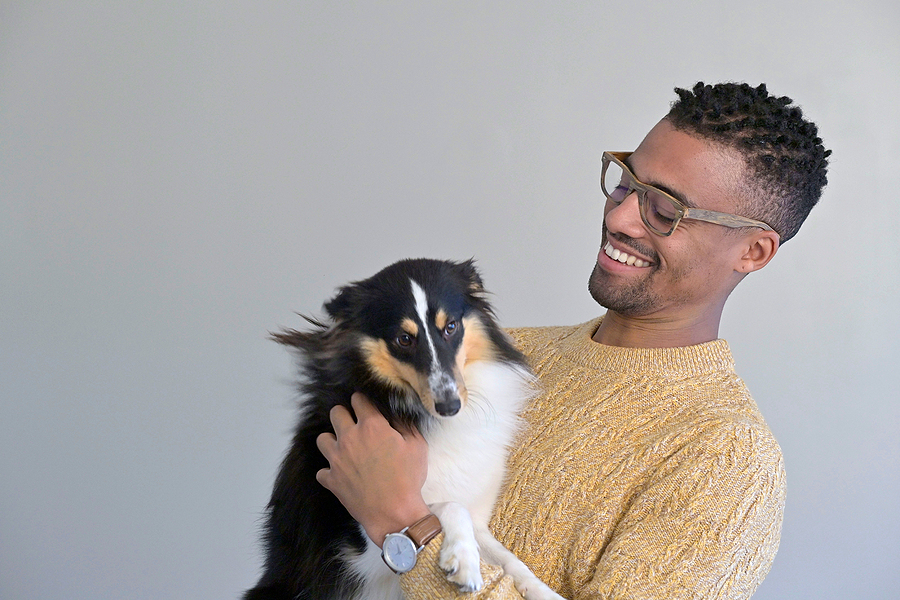It’s every happy holiday rolled into one – the day you bring your new puppy home. You may have big plans for your new best friend. Agility or other dog sports? Therapy volunteerism? Hikes and adventures? Travel and doggie playdates? All exciting. But first, you have to get through the first few days. How you do so will have a big impact on the rest of your lives together.
If you are getting a young puppy, he will likely leave his litter when he is 8 to 9 weeks old. Anything earlier can affect his development. Puppies need that early educational and bonding time with their moms and siblings. For example, by playing with his siblings, your puppy learns to inhibit his bite. When he bites down hard on his brother while playing, his brother may get upset and storm off in a huff, ending playtime. Your pup will learn to soften his bite, so the game doesn’t end. Puppies taken too early from their littermates are often extra mouthy because they haven’t yet learned that lesson.
What to Expect
When I met my last Papillon, Finian, he was a bouncy social butterfly at his breeder’s house. I flew him home and he shut down. My roommate was so excited to meet him, and he wanted nothing to do with her. What happened to the outgoing puppy I met the day before? A ton of changes! Stressful changes. Taken from his mom and littermates. A plane ride and car rides. New home with dogs he didn’t know. New routine. New everything. He was overwhelmed, so he shut down. This was all normal and expected. Within 24 hours, he recovered and was his bouncy, natural self again.
Don’t be surprised if your puppy is shy or nervous the first few nights. He may not eat very well. He may have an accident in his crate. It may take a day, like with Finian, or it may take a week. Just be patient so he can adjust to his new life.
What Not to Do
Here are some common mistakes people make when bringing home their new family member.
Don’t throw a party. Of course you want all your friends and family to meet your new puppy. They are probably just as excited as you are! But surrounding your new puppy with people can be overwhelming. Remember that puppies less than 12 weeks old are in the critical socialization period. They are making opinions now they will carry for the rest of their lives. So socialization is important, but it should be controlled socialization that creates positive experiences. If you swamp your puppy with a party crowd, you could actually be teaching him to dislike people.
Instead, invite a few folks over at a time. Always let the puppy approach them; never just hand your puppy to someone to hold. If he is shy or fearful, handing him over to a stranger will make fear worse, and erode his new trust in you. Control the crowd and make sure everyone gives him treats, to create positive associations with your family and friends.
Don’t spend every minute with him. You’ve blocked your calendar, taken time off work, and are ready to launch your new life together. This sounds magical, but you’re setting your puppy up for a rude surprise when you have to go back to work and your other responsibilities. Right from the start, make sure your puppy gets alone time. Make sure he has a variety of chew toys (rotate them daily to keep his interest) and feed him his meals out of food-dispensing toys, to help him learn to self-soothe when you can’t be around.
What to Do
Set rules and boundaries from the start. It’s tempting to let that adorable ball of fluff get away with murder, but resist temptation. If you don’t want him to jump on you when he’s grown, don’t allow it now. If you don’t want him on the furniture when he’s grown, don’t allow it now. If you are permissive now and change the rules later, that’s a conflicting message.
Start socialization and training right now. Do not wait until your puppy has had all his vaccinations before you start socializing him. By then it’s too late. Start now with these tips. You can also start training your puppy right away. Puppies are wonderful little sponges, ready to soak up information. Take advantage of this and start teaching basic family manners now. The earlier you start, the easier it will be for both of you once he becomes a teenager.
This article was reviewed/edited by board-certified veterinary behaviorist Dr. Kenneth Martin and/or veterinary technician specialist in behavior Debbie Martin, LVT.








